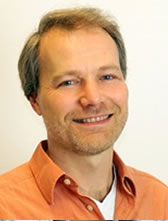CPS Meeting 2019
Please find informations on our final project report meeting here:
Conference report:
PDF-File (1,7 mB)
Conference website:
www.cps2019.de
Dierks/Müller/Sewald
Twofold bio-orthogonal derivatization of antibody fragments by two different C(alpha)-formylglycine generating enzymes for generation of antibody-drug conjugates
Tumor therapy is an important research objective and continues to drive the development of novel biopharmaceuticals. Despite a remarkable improvement of our knowledge in cancer biology and the successful approval of several novel targeted therapies, long term disease control or cure remain the exception rather than the rule in oncology. Moreover, currently used anti-tumor drugs are highly cytotoxic and therapies often are associated with severe side effects. Pharmaceutical agents that specifically recognize molecular structures present on tumor cells would be advantageous to target the delivery of a drug to a tumor cell. Recently, there has been an exponential growth in the field of antibody-drug conjugates (ADCs), where a monoclonal antibody (mAb) is linked to a highly cytotoxic drug. A major challenge in ADC production is to reach a high homogeneity with a uniform drug-antibody ratio (DAR) and a defined location of conjugation site. Tumor-targeting antibodies with relative specific cell toxicity are emerging as first line treatments for some tumors, for example Epidermal Growth Factor Receptor (EGFR) overexpressing tumors.
The joint project combines three groups from neighboring departments at Bielefeld University with expertise in biochemistry (Dierks: formylglycine-generating enzymes), biotechnology (Müller: enzyme optimization by cell display, antibody engineering), and bioorganic/bioconjugate chemistry (Sewald: peptide synthesis, drug conjugates) in order to develop and optimize a robust enzymatic system for the twofold bio-orthogonal derivatization of model peptides and antibodies applying two different C(alpha)-formylglycine generating enzymes. Antibodies directed against EGFR will be co-expressed with the human C(alpha)-formylglycine generating enzyme FGE in CHO cells. Enzyme activity will be improved by rational design as well as by directed evolution (using cell display selection technology). After ligation of a first moiety (small-molecule drug or fluorophore) by addressing the newly generated formyl group, the antibody will be further converted in vitro by AtsB, a prokaryotic C(alpha)-formylglycine generating enzyme targeting a different sequence tag. The second formyl group will be used for bio-orthogonal introduction of a second, different moiety (a PEG residue or another type of drug). This approach will lead to antibody conjugates with two drugs having different modes of action or other functionalities, e.g. for uptake and distribution studies. Obtained ADCs will be tested in cytotoxicity assays using cells with different EGFR expression levels.

Prof. Dr. Thomas Dierks
Universität Bielefeld
Universitätsstr. 25
33615 Bielefeld

Prof. Dr. Kristian Müller
Universität Bielefeld
Tel.: +49 521 106-6318
Fax.: +49 521 106-156318

Prof. Dr. Norbert Sewald
Universität Bielefeld
Publications within the SPP 1623 project
M. Boschanski, T. Krüger, L. Karsten, G. Falck, S. Alam, M. Gerlach, B. Muller, K.M. Müller, N. Sewald, T. Dierks
Bioconjugate Chemistry2021, 32, 1167–1174
Site-Specific Conjugation Strategy for Dual Antibody-Drug Conjugates Using Aerobic Formylglycine-Generating Enzymes
Link to the article
N. Janson, T. Krüger, L. Karsten, M. Boschanski, T. Dierks, K.M. Müller, N. Sewald
ChemBioChem2020, 21(24), 3580-3593
Bifunctional Reagents for Formylglycine Conjugation: Pitfalls and Breakthroughs
Link to the article
T. Krüger, S. Weiland, M. Boschanski, P.K. Sinha, G. Falck, K.M. Müller, T. Dierks, N. Sewald
ChemBioChem2019,20(16: Special Issue: 10th IPS), 2074-2078
Conversion of Serine-Type Aldehyde Tags by the Radical SAM Protein AtsB from Methanosarcina mazei
Link to the article
T. Krüger, T. Dierks, N. Sewald
BIOLOGICAL CHEMISTRY2019, 400(3),289-297
Formylglycine-generating enzymes for site-specific bioconjugation
Link to the article
T. Krüger, S. Weiland, G. Falck, M. Gerlach, M. Boschanski, S. Alam, K.M. Müller, T. Dierks, N. Sewald
Angewandte Chem. Int. Ed. 2018, 57(24), 7245-7249
Two-fold Bioorthogonal Derivatization by Different Formylglycine-Generating Enzymes.
Link to the article
G. Falck, K.M. Müller
Antibodies2018, 7(1), 4
Enzyme-Based labeling strategies for antibody–drug conjugates and antibody mimetics
Link to the article

